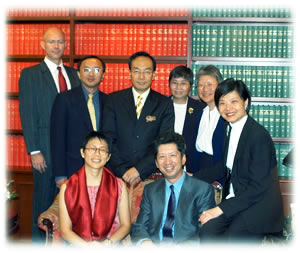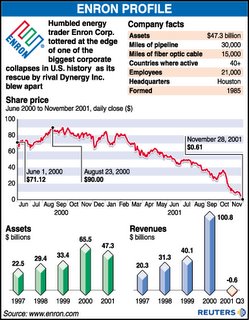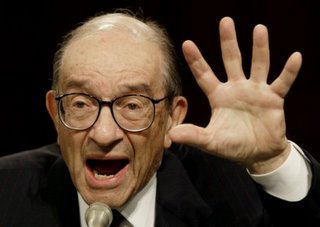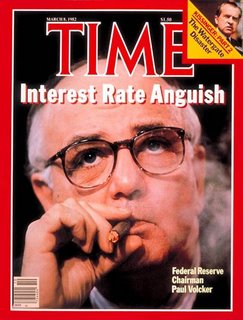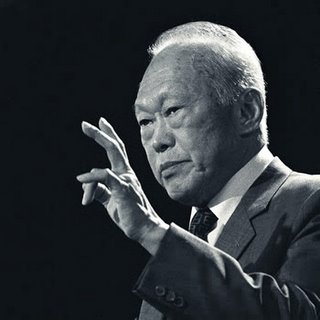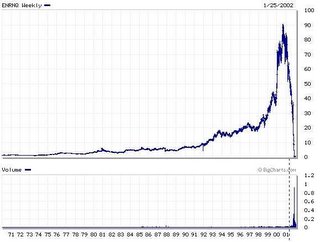RTHK Reform

Like a gallant soldier on his trusty steed, riding alongside his fellow cavalry units, giving the one finger salute to an armored
tank column, before being ordered to charge. That is the current RTHK, a policy manifestation of
an Hong Kong Government seemingly unaware of technological change, adhering to obsolete 'truths' and insulting the journalistic integrity of the many great professionals working in the private sector media of Hong Kong.
The government has finally embarked upon reform of the Public Broadcasting Services. The main focus will be the RTHK. The only acceptable policy is to end its relationship with the Hong Kong Government, so that the talent tied down by this bureaucracy could be released to flourish and the HK$500 million budget returned to the private sector to benefit all people of Hong Kong.
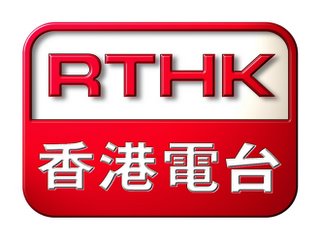
The implied raison d'etre of the RTHK is to save the people of Hong Kong, dullards unable to tell lies from truths, from private sector media that are at best unreliable, and at worst, manipulative monopolies of information.
While it is fair to believe each media outlet reports the news with their own particular viewpoint, influenced perhaps by a tendency of journalists of certain beliefs to congregate with owners or editors sharing similar values. We must also acknowledge that private media in totality does present a broad spectrum of information creating an
all encompassing mosaic of perspectives on news and events.

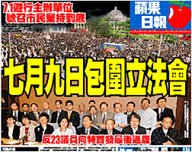
While the literal press has always been lively with competitive views, electronic media has suffered from a limited number of participants, supposedly justifying the existence of RTHK. However, the recent and continuing spread of Internet and wireless technologies suggest that audiovisual Internet access will soon reach all corners of Hong Kong. Wired or wireless, very soon no government will be able to control what, when and where we will read, watch or listen. If the government cannot control this flow of information, how could private corporations that lack the government power of coercion do the same thing?
Surely Hong Kong has a level of sophistication and healthy skepticism to question every piece of information that touches our senses everyday.
To dismiss the constant filtering of information we practice in everyday as insufficient, leaving us prone to manipulation implies that we are naïve and that is an insult to the spirit of respecting individual choice, the same spirit that under pins the argument for democracy.

Some defend RTHK as a body that provides material that is for the 'minority' and therefore would not be provided by private media driven by commercial considerations. While the goal itself is debatable, RTHK was indeed an effective body to deliver content that only a few people were sufficiently interested. However, in an EOIP (Everything Over Internet Protocol) world, the minority will be well served and we could no longer justify forcibly allocating HK$500 million per year to RTHK when other more desperate needs of society yearns for those same resources.
It is also true that RTHK has produced some of the most memorable media moments in Hong Kong history and the quality of their programming is extremely high. However, the many talents that created those moments could have touched the souls of many more if lent the resources of the private sector.
How could one believe otherwise?
We at the Lion Rock Institute, feel the pain and worry of the most fervent supporters of the status quo. We can see their anguish over what they feel to be the smoldering of the last remaining light of truth, the helplessness of worrying over their fellow citizens to be lied to. But we have to ask, if RTHK alone is capable of balanced coverage of news and events, then perhaps there is no need for the existence of private media outlets? Perhaps we should banish private media as purveyor of lies and half-truths and let the sole source of truth that is the RTHK rebrand itself as ‘Hong Kong Pravda’.

I hope this review of Public Service Broadcasting in Hong Kong demonstrates the government’s trust in the people of Hong Kong, that we can be trusted to communicate with each other, through private sector media. We choose to believe, or not believe, these communications by exercising our intellectual faculties to weigh messages against competing messages and our own experience. Further more, the reviewing body will hopefully demonstrate an understanding of technological change that has leveled the media playing field. Podcasts, internet radio, Bit Torrent and blogs are just a few examples of expanding media that will cater to a multiplicity of minorities and provide a variety of free low cost channels for independent voices to compete in the marketplace of ideas. From this era on, a blogger armed with the truth will slay a lying giant, every time.
Whether through abolishment or full privatization,
RTHK as a government-funded entity has successfully fulfilled its historical duties. This anachronism should be gracefully retired or vigorously rejuvenated as a private sector entity.
Thank you RTHK, but its time for you to go your own way.
 不 能 否 認 皇 馬 在 這 幾 年 的 歡 迎 度 急 升 , 氣 勢 掩 蓋 九 十 年 代 球 迷 霸 主 曼 聯 。 這 是 因 為 皇 馬 從 2002 年 開 始 , 奉 行 「 天 皇 巨 星 式 」 ( Galacticos ) 的 管 理 哲 學 。 買 了 碧 咸 、 朗 拿 度 、 施 丹 , 這 些 連 我 母 親 也 認 識 的 球 員 , 都 是 公 認 為 天 下 最 好 的 球 員 , 如 果 不 是 資 深 足 球 迷 , 都 會 誤 以 為 皇 馬 便 是 全 球 最 好 的 球 會 。
不 能 否 認 皇 馬 在 這 幾 年 的 歡 迎 度 急 升 , 氣 勢 掩 蓋 九 十 年 代 球 迷 霸 主 曼 聯 。 這 是 因 為 皇 馬 從 2002 年 開 始 , 奉 行 「 天 皇 巨 星 式 」 ( Galacticos ) 的 管 理 哲 學 。 買 了 碧 咸 、 朗 拿 度 、 施 丹 , 這 些 連 我 母 親 也 認 識 的 球 員 , 都 是 公 認 為 天 下 最 好 的 球 員 , 如 果 不 是 資 深 足 球 迷 , 都 會 誤 以 為 皇 馬 便 是 全 球 最 好 的 球 會 。